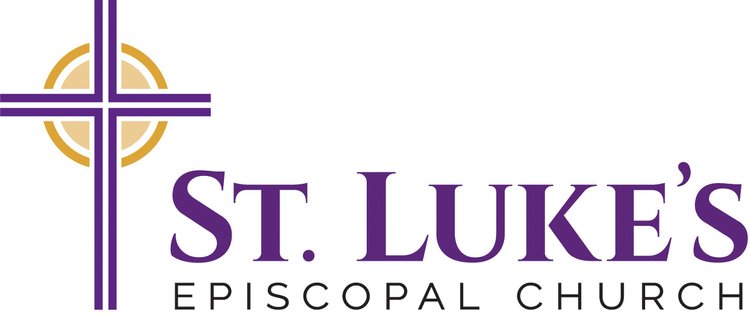A rite is a form for religious ceremony. It includes both what is said and what is done in the religious observance. Rite expresses the church's relationship with God through words, actions, and symbols. It orders the church's common worship. Rite enables the community to share its faith and experience God's presence in a particular liturgical and pastoral context. — “An Episcopal Dictionary of the Church, A User Friendly Reference for Episcopalians”
To inquire about any rite, please contact our rector at nick@saintlukeschurch.net.
The Holy Eucharist
The Holy Eucharist or Holy Communion is the principal service of worship on Sunday. All baptized persons who regularly receive Communion in their own tradition are welcome to receive Communion in the Episcopal Church. Children customarily receive instruction from their parents and from the church before beginning to receive Communion.
On the last night before his arrest, our Lord, Jesus Christ, took bread, blessed it, broke it, and gave it to his disciples. He said that bread was his Body and that the cup of wine was his Blood, and that they were consecrated as a new promise between God and his people. In that action of the Last Supper and in his words he commanded us to continue to celebrate the Communion in memory of him.
Holy Baptism
The Episcopal Church teaches that baptism is full initiation into the Christian Church. Baptism is with water in the name of the Father, Son, and Holy Spirit. Any baptism that meets this criterion is valid, regardless of the denomination in which it was performed.
Instruction from the clergy is customary before baptism both for adults and for the parents and sponsors of infants and young children. Two or more godparents or sponsors traditionally speak for an infant. These persons must themselves be baptized Christians. Baptisms are performed in the context of a public service of the church, normally at a 10:00 a.m. Sunday service.
The Episcopal Church normally reserves the following days for Holy Baptism: the First Sunday after the Epiphany; the Easter Vigil; the Day of Pentecost; All Saints' Sunday. St. Luke's has also designated the following days for Holy Baptism: the Sunday of the Bishop's visit and a Sunday in mid–summer.
Confirmation
Confirmation is administered by a bishop and is the rite by which a person makes a mature and public commitment to Jesus Christ. Because Confirmation is a mature and individual commitment to follow Jesus Christ, it is recommended that only children fifteen and older consider this step. Instruction for both adults and youth is provided.
Holy Matrimony
The Episcopal Church holds that matrimony is a sacred calling. The church advises that the couple enter into a period of premarital counseling with a member of the clergy. When a couple asks to be married in the church they are really asking that the priest pronounce God's blessing (and that of the church) on the marriage. The priest cannot do that unless he or she is convinced that the couple intend to form a Christian marriage in accordance with the understanding of the Episcopal Church.
Most couples find the premarital counseling period to be enjoyable and valuable. It gives the couple a chance to talk together in the presence of a trained clergy person about various issues in their relationship. It is designed to help them deal with the many issues that arise in the beginning of married life and to develop a firm foundation for their marriage.
Private Holy Communion
Holy Communion is available at any time for the hospitalized, shut–in, or those recuperating from illness at home.
Unction
Unction is the “rite of anointing the sick with oil, or the laying on of hands, by which God's grace is given for the healing of spirit, mind and body.” This rite is administered within the context of the Eucharist celebrated each Wednesday at 12:00 p.m.. It is also offered to the hospitalized, to shut–ins, or to any who request its private administration.
Funerals
The Episcopal Church encourages its people to have their burials take place from the church building. The coffin is always closed before the service and covered with a pall, which symbolizes our equality in death and our resurrected life in God's love.
The Burial Office of The Book of Common Prayer is an Easter liturgy. “It finds all its meaning in the resurrection. Because Jesus was raised from the dead, we too, shall be raised.” (BCP, p. 507)
“The death of a member of the Church should be reported as soon as possible to, and arrangements for the funeral should be made in consultation with, the Minister of the Congregation.” (BCP, p. 468)
